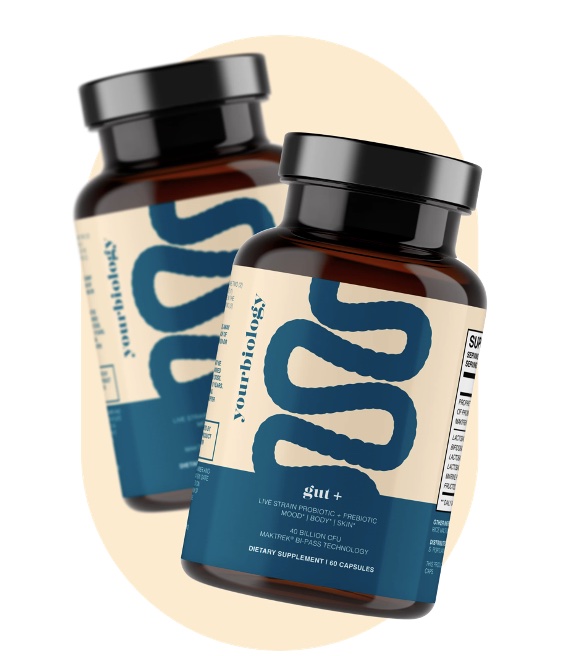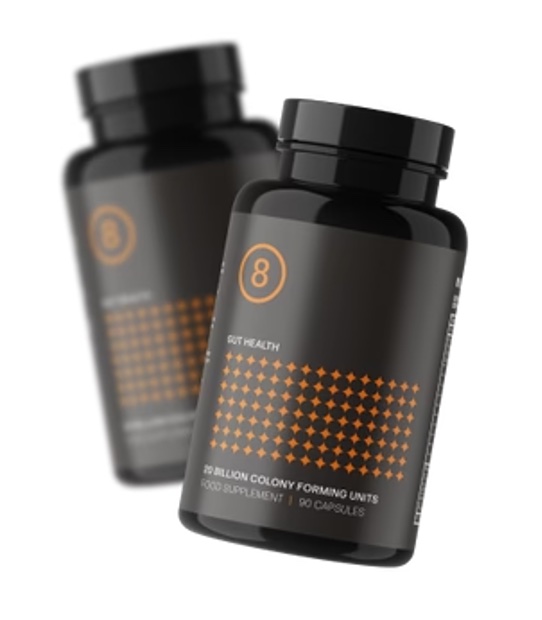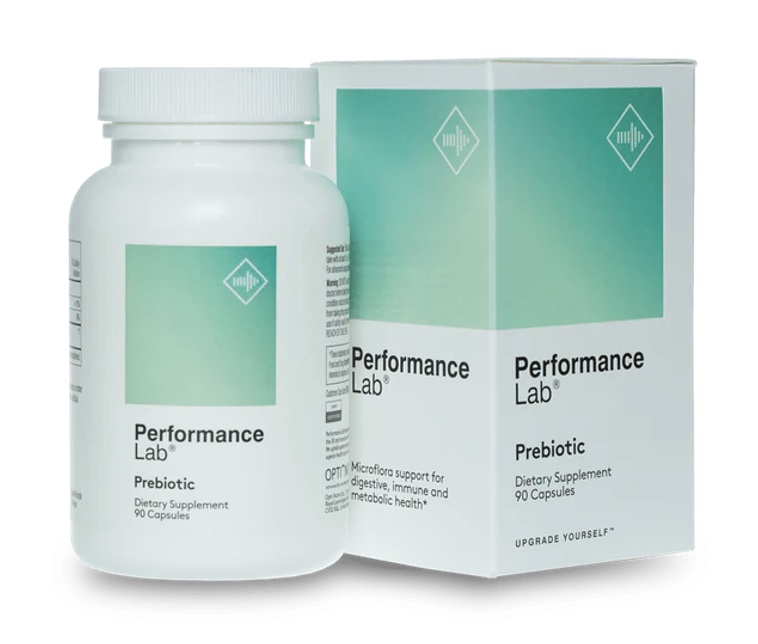
Over the course of the last ten years, probiotics have seen a meteoric rise in popularity. One study conducted in 2012 found that just 1.6% of persons in the United States made use of probiotics or prebiotics. By May of the year 2020, that percentage had risen to 22% of the total population.
There are many various explanations for why people choose to consume probiotics. One important advantage of taking probiotics is that they can aid in the treatment of constipation.
Constipation affects around one third of people in the United States who are over the age of 60. A significant number of these individuals have discovered that particular probiotics make their symptoms more bearable.
Constipation affects a significant number of people of all ages. You may be able to treat your constipation at home by making some straightforward adjustments to your food and lifestyle, such as increasing your use of probiotics and other supplements that promote digestive health.
We’ll take you through the top probiotics for constipation that we recommend in this article.
Best Probiotics for Constipation: Top 3 for 2023
- YourBiology Gut+ (Overall Best Probiotic for Constipation)
- Biotics 8 (Best Probiotic for Men with Constipation)
- Performance Lab Prebiotic (Runner Up Prebiotic for Constipation and Weight Loss)
#1. YourBiology Gut+ (Overall Best Probiotic for Constipation)

Constipation and other digestive difficulties can be alleviated with the help of a number of various probiotic supplements available on the market today; nevertheless, Probiology Gut+ is one of the most effective of these products.
The supplement known as YourBiology Gut+ has a high concentration of live bacteria as well as prebiotics, which are substances that promote the expansion of beneficial bacteria in the gut.
In addition to this, it has been designed to be resistant to the acid produced by the stomach, allowing for a greater number of the active bacteria to be absorbed by the intestines. Because of this, it is one of the probiotic supplements on the market that is the most helpful for treating constipation, IBS, and digestion.
Here are the key benefits of YourBiology Gut+:
- Enhances digestion as well as the evacuation of stools
- Promote digestive health and repair a damaged gut.
- Boosts the immune system and provides protection against disease
- A decrease in levels of stress and anxiety
- A source of both energy and attention
- Helps improve skin
>> Click Here for the Best Deals for YourBiology Gut+ <<
Explanation of Probiotics in YourBiology Gut+
Bifidobacterium lactis (also known as B. lactis)
According to research, B. lactis is one of the most effective probiotics for alleviating constipation. This is made abundantly evident by the findings of a comprehensive review that was carried out by a study group in the United Kingdom.
The researchers examined the results of 14 clinical studies in which a total of 1182 individuals were administered probiotic bacteria in an effort to alleviate their symptoms of constipation.
According to the findings of the study, probiotics considerably cut down on the amount of time it took for the whole stomach to transit and the number of times one had to urinate. Nonetheless, towards the end of their study, the researchers note that B. lactis was very effective.
Lactobacillus Plantarum (L. Plantarum)
Another strain of probiotic bacteria that has been shown to enhance the amount of time that feces pass through the digestive tract and alleviate the discomfort of constipation is called L. plantarum.
According to the findings of one clinical experiment, strains from this type of bacteria have the potential to give considerable alleviation. Taking it a step further, the researchers pinpoint the possible molecular pathways that are at play here.
Lactobacillus Paracasei (L. Paracasei)
- paracasei looks to have potential utility as a probiotic cure for constipation, despite the fact that its capabilities have not been investigated to the same extent as those of the preceding two species of Lactobacillus.
- paracasei was able to overcome the effects of a medication that causes constipation in a test that was conducted on rats that were given laxatives on purpose.
Together with Lactobacillus plantarum, Lactobacillus paracasei is considered to be one of the most effective probiotics for use in the treatment of menopausal symptoms in women. According to the research, it helps strengthen bones.
It is possible that doing so will provide protection against osteoporosis (a common menopausal issue).
Pros:
- The product contains a number of the most effective probiotic species available for alleviating constipation.
- Created with females in mind (but suitable for men too)
- Also includes prebiotic fiber (to nourish your existing probiotic bacteria)
- Utilizes a unique covering that does not fall apart until after it has passed through the digestive tract.
Cons:
- The maker provides a money-back guarantee that is valid for sixty days.
- You can only get it from the manufacturer’s online store.
>> Click Here for the Best Deals for YourBiology Gut+ <<
#2. Biotics 8 (Best Probiotic for Men with Constipation)

The synergistic combination of probiotics, prebiotics, digestive enzymes, fiber, and vitamin D that makes up Biotics 8 is an excellent way to assist support overall gut health, digestion, and maybe other health concerns.
Although Biotics 8 is marketed for guys, there is no reason why women can’t also use it. It is particularly successful at resolving a wide variety of issues relating to the digestive tract, stomach, and bowels.
Here are the key benefits of Biotics 8:
- Promotes calm digestion
- Assists in the reduction of flatulence and bloating.
- Improves resistance to disease
- Increases vigor and mental clarity
>> Click here for the best deals on Biotics 8 <<
Explanation of Probiotics in Biotics 8
Lactobacillus Plantarum (L. Plantarum)
Yep! It has appeared once more. We warned you not to be taken aback by what happened. On the other hand, the fact that it may be found in a significant number of the most effective probiotics for relieving constipation is one of the finest affirmations of its efficacy.
Bifidobacterium Breve (B. Breve)
According to research, B. breve has the potential to be an efficient therapy for improving the frequency of stools in children who suffer from functional constipation.
There is no rational explanation for why it should not be just as beneficial for adults.
Lactobacillus Acidophilus (L. Acidophilus)
This species of Lactobacillus does not appear to relieve constipation; yet, it still merits a mention because of its importance. L. acidophilus may assist improvements in testicular tissue and male reproductive hormones in addition to being one of the best probiotics for boosting overall gut health. This is because L. acidophilus has been shown to increase overall gut health.
Pros:
- One of the most effective probiotic supplements available for men
- Offers a number of different bacterial species that help alleviate constipation
- Also includes prebiotic fiber (to nourish your existing probiotic bacteria)
- Vitamin D and digestive enzymes are included for your benefit.
Cons:
- The maker offers a money-back guarantee that is valid for sixty days.
- You may only purchase this product via the manufacturer’s official website.
- Each bottle only contains enough medication for 20 days of therapy.
>> Click here for the best deals on Biotics 8 <<
#3. Performance Lab Prebiotic (Runner Up for Constipation and Weight Loss)

The supplement known as Performance Lab Prebiotic helps maintain the health of your digestive tract.
It has a proprietary form of inulin-POS, which is a type of soluble fiber that ferments and provides food for the beneficial bacteria that are found in your digestive tract.
Performance Lab® Prebiotic provides Orafti® Synergy1 (Inulin-FOS from chicory root), the best prebiotic for boosting constipation-relieving probiotics, in a dose of 1.7 g of fiber in each serving. This helps support digestive, immune, and metabolic health.
>> Click Here to get the best deal for Performance Lab Prebiotic <<
Explanation of Ingredients in Performance Lab Prebiotic
Inulin-FOS (FructoOligoSaccharides)(as Orafti® Synergy1)
The chicory root is the original source of the soluble fiber-based prebiotic known as inulin-FOS (FructoOligoSaccharides).
Inulin is a kind of long-chain carbohydrate that may be obtained from chicory root by the process of water extraction. Short-chain oligofructose, commonly known as fructose-oligosaccharide (FOS), is produced by treating inulin with an enzyme that is also present in chicory root in its native state.
Orafti® Synergy1 is a blend that contains 50% long-chain and 50% short-chain inulin in equal parts.
The inulin and fructooligosaccharides that are contained in Performance Lab Prebiotic are designed to travel through your digestive tract undigested and into your large intestine.
Bacteria in your gut, such as bifidobacteria, ferment inulin and FOS after they have reached their destination. This ultimately results in a greater number of bifidobacteria.
Acetate, propionate, and butyrate are some of the short-chain fatty acids (SCFAs) that are produced as a byproduct of this fermentation.
Pros:
- Increase the frequency of bowel movements, which helps maintain regular bowel function.
- Helps increase the consistency of stools, which makes passing them easier.
- Stimulates fermentation activities in the gut, which results in a rise in stool volume and a softer consistency.
- Facilitates the elimination process while minimizing discomfort
- Maintains a healthy intestinal lining and decreases the likelihood of developing a leaky gut.
Cons:
- Not actually a probiotic supplement (it’s a prebiotic)
- Only contains 1 ingredient (a patented form of chicory root)
- You can only buy from its official website
>> Click Here to get the best deal for Performance Lab Prebiotic <<
Do probiotics help with constipation?
You might have heard about natural probiotics like Japanese kombucha. Kombucha originated approximately 220 B.C. in Northeast China (then known as Manchuria). The name comes from Dr. Kombu, a Korean physician who introduced the tea to Japan and offered it to the Emperor of Japan. Nonetheless, the history of kombucha is extensive and fascinating, with expanding popularity from China to the United States.
From the beginning of the 1980s, probiotics have been widely used as dietary supplements. On the other hand, experts in the medical field didn’t start examining the advantages until around 10 years ago. As a consequence of this, medical practitioners do not yet have a definitive understanding of the effects of consuming probiotics.
On the other hand, a rising number of research offer a clearer picture of the benefits of utilizing probiotics for a variety of objectives. They have done research on a variety of areas, one of which is the significance of utilizing probiotics to combat constipation.
In 2014, one of the earliest research on this subject was carried out by Kings College, which is located in London. The findings of the study were presented in a paper that was published in the American Journal of Clinical Nutrition. According to the results of the study, probiotics have the potential to cure constipation by accelerating whole gut transit time and increasing stool consistency and frequency.
A multitude of subsequent investigations have all arrived at the same findings. Constipation is a common problem among adults of all ages, and there is emerging evidence that probiotics can be an effective treatment for the condition.
Which Probiotic helps best for constipation?
In order to alleviate constipation, researchers have tried out a wide variety of various strains of probiotics. According to the findings of several preliminary studies, the strains of Bifidobacterium lactis and Bifidobacterium infantis are among the most effective probiotics.
A study that was conducted in Iran in 2016 indicated that women who ate yogurt that had strains of Bifidobacterium and Lactobacillus bacteria saw an improvement in several symptoms of constipation after four weeks.
Saccharomyces boulardii and Lactobacillus acidophilus are other two probiotic strains that might be beneficial in the battle against constipation symptoms.
It is recommended that you seek probiotics that contain these strains. Different types of probiotic bacteria could provide additional health advantages, but it’s not certain that they’ll help relieve constipation.
Both YourBiology Gut+ and Biotics 8 contain the probiotics mentioned.
Probiotics for Constipation and Weight Loss
Probiotics may be able to assist you in losing weight and reducing the proportion of body fat you have, according to the findings of a recent analysis that looked at research that were well-designed on the topic of probiotics and weight reduction in persons who were overweight or obese.
Studies have shown that some strains of the Lactobacillus family, in particular, can assist in the reduction of both overall body fat and visceral fat in the abdominal region.
According to one piece of research, consuming yogurt with either Lactobacillus fermentum or Lactobacillus amylovorus resulted in a reduction of 3–4% of total body fat over the course of 6 weeks.
In yet another study, the benefits of using Lactobacillus rhamnosus supplements on weight reduction and keeping the weight off were explored using 125 overweight dieters.
When compared with women who took a placebo tablet, those who took the probiotics had a weight loss that was fifty percent more over the course of three months. Throughout the portion of the trial in which they maintained their weight, they still kept losing weight.
Throughout the course of a well-designed trial, 114 obese people were randomly assigned to receive either the Lactobacillus sakei probiotic or a placebo for a period of one year. Individuals who took the probiotic saw substantial reductions not just in their overall body fat mass but also in their waist circumference.
Types of Probiotics for Constipation and Weight Loss
There are many different types of probiotics, and some of them may help you lose weight and belly fat.
Women who were overweight or obese participated in a trial for eight weeks in which they either followed a dietary intervention and took a probiotic that included strains of both Lactobacillus and Bifidobacterium or they took a placebo instead of the probiotic.
Individuals who consumed the probiotic had a considerably greater reduction in abdominal fat than those who took a placebo.
In yet another study, 135 people who had significant amounts of belly fat were given either a placebo or the probiotic Bifidobacterium animalis subsp. lactis for a period of three months. Those who took the probiotic lost significantly more belly fat and had reduced BMI and waist circumference than those who took the placebo.
The significance of these findings was highlighted significantly in female subjects.
If you’re looking more specifically to lose weight, check out the best medicine for weight loss or intermittent fasting fat burner pills.
More Info on the Best Probiotic Strains for Constipation and Bloating
Certain probiotic strains are more successful than others for relieving constipation, however there are many different types of probiotic bacteria that can be helpful for the condition.
Lactobacillus acidophilus is considered to be one of the most effective probiotic strains for treating constipation. This strain is well-known for its capacity to assist in the movement of food through the digestive system. Moreover, it assists in the breakdown of dietary components that might contribute to constipation.
Bifidobacterium lactis is another another beneficial probiotic strain for treating constipation. This particular strain is beneficial for both the regulation of bowel motions and the reduction of inflammation that might occur in the digestive tract.
It is vital to take a probiotic pill that contains one or both of these strains if you are experiencing constipation because this condition makes it difficult to pass stool.
In order to alleviate constipation, the most effective probiotic strain works by dissolving food into smaller pieces, which makes it simpler for bowel movements to occur.
Irritable bowel syndrome (IBS) symptoms are alleviated with lactobacillus acidophilus
The human digestive tract is home to a bacteria called Lactobacillus acidophilus, which is considered to be a “friendly” bacteria. The digestive process, vitamin synthesis, and the battle against pathogenic bacteria are all aided by the presence of acidophilus in the body.
The bacterium known as Lactobacillus acidophilus also generates lactic acid, which increases the acidity of the intestines and provides an environment that is unfavorable for the growth of bacteria that are dangerous to humans.
It has been demonstrated that using lactobacillus acidophilus can alleviate symptoms of irritable bowel syndrome, including constipation (IBS). It is not totally known how Lactobacillus acidophilus relieves symptoms of constipation and irritable bowel syndrome (IBS), however it is suspected that the probiotic bacteria may assist to control motility in the intestines and/or enhance gut barrier function.
In order to substantiate these effects, more study is required. In spite of this, Lactobacillus acidophilus is a probiotic that is both safe and effective, and it may be used to promote the health of the digestive tract.
Bifidobacterium lactis is a probiotic that facilitates regular bowel movement
Bifidobacterium lactis is a kind of beneficial bacteria that plays an important role in maintaining a healthy digestive tract.
This particular probiotic has a number of advantages, one of which is relief from constipation. The presence of B. lactis can aid to soften feces, which in turn makes it simpler to pass them. This is accomplished via the production of short-chain fatty acids, which, as a result, increase the amount of moisture seen in feces.
Moreover, B. lactis contributes to an increase in the total number of bowel movements that occur daily. In a research study involving people who were experiencing constipation, those who took a probiotic supplement that included B. lactis saw an increase in the number of bowel movements that they had on a daily basis in comparison to those who took a placebo.
It’s possible that taking Bifidobacterium lactis might help reduce additional symptoms associated with constipation, such stomach discomfort and bloating. Both the reduction of inflammation in the digestive tract as well as the restoration of normal gut motility are necessary for the probiotic to be effective.
If you struggle with constipation, adding a supplement to your diet that contains B. lactis can help to alleviate some of the symptoms you’re experiencing.
Lactobacillus plantarum is another beneficial probiotic for pooping
Lactobacillus plantarum is a kind of beneficial bacteria that may be found naturally in the human gastrointestinal tract. This bacterium may be found in a wide variety of strains, each of which possesses its own individual set of characteristics.
It has been demonstrated that one strain of Lactobacillus plantarum, namely 299v, is particularly efficient in alleviating bloating as well as stomach distress. This particular strain of Lactobacillus plantarum is responsible for the production of a protein known as class IIa bacteriocin. This bacteriocin prevents other bacteria in the gut from multiplying.
A research conducted on rats found that administering Lactobacillus plantarum 299v reduced stomach bloating by as much as fifty percent. In addition to that, the increased generation of short-chain fatty acids in the stomach caused by this strain of Lactobacillus plantarum helps to support good bowel disposal and contributes to the overall health of the digestive tract.
These short-chain fatty acids contribute to maintaining a healthy colon and warding off constipation in the process. As a result, Lactobacillus plantarum 299v is an efficient probiotic that can alleviate bloating and stomach irritation, as well as encourage healthy bowel clearance.
Lactobacillus paracasei decreases inflammatory response
A probiotic that has numerous positive effects on the health of the gastrointestinal tract is called lactobacillus paracasei. The ease with which it facilitates bowel motions is one of the primary ways in which it is helpful.
This is due to the fact that it helps to increase the quantity of water that is present in the colon, which in turn makes the stool easier to travel through the body.
It also helps to decrease inflammation in the gut, which is important since inflammation in the stomach can make bowel motions uncomfortable and difficult. In addition, Lactobacillus paracasei is responsible for the production of short-chain fatty acids, which have the ability to reduce inflammation.
Because of this, it is able to effectively treat inflammatory bowel illnesses including Crohn’s disease and ulcerative colitis. Probiotics are living bacteria that are comparable to those that are already present in the human digestive tract.
You may get them in the form of supplements, or you can find them naturally occurring in fermented foods like yogurt and sauerkraut. Adding Lactobacillus paracasei in your diet is a straightforward and efficient strategy to enhance the health of your digestive tract and increase the frequency of your bowel movements.
Both YourBiology Gut+ and Biotics 8 contain the probiotics mentioned above.
Conclusion on the Best Probiotics for Constipation
We’re now at the climax before we metaphorically “flush the toilet” on this article…a pretty weird way of telling you that you’re at the conclusion of this article, but we move on nevertheless…
Even though we are going to conclude this piece on a humorous note, the condition of being constipated is nothing to joke about. We hope that the information that we have supplied will assist you in locating the approach that will bring the most effective relief.
The abilities of the different species of probiotic bacteria that are provided by each probiotic product were taken into consideration while developing our recommendations. Each one has at least two different species of the beneficial bacteria known as probiotics, whose effectiveness has been demonstrated and is supported by research.
Our content is completely based on research. The information that we supply may also be verified extremely quickly and easily. Our sources have been cited throughout the post, and we have included links to each of the aforementioned research at the very bottom of this page.
We would like to bring out one last thing before we wrap up this post. If you want to get the most out of any probiotic supplement, you need to take it in conjunction with a balanced diet and exercise routine.
Improved gut health is one of the primary effects that taking probiotics may have. What good does it do to have a healthy stomach if the rest of your body is suffering because of a lack of activity and unhealthy eating habits? A probiotic for constipation should be considered vital for anyone who suffers from irregular bowel movements, low gut transit time, or the need to increase the number of times they urinate.
Here’s a reminder of the top 3 probiotics for constipation:
- YourBiology Gut+: Overall Best Probiotic for Constipation
- Biotics 8: Best Probiotic for Men with Constipation
- Performance Lab Prebiotic: Runner Up Prebiotic for Constipation and Weight Loss
Content Disclaimer:
The information does not constitute advice or an offer to buy. Any purchase made from the above press release is made at your own risk. Consult an expert advisor/health professional before any such purchase. Any purchase made from this link is subject to the final terms and conditions of the website’s selling as mentioned in the above as source. The Advertising Agency and its downstream distribution partners do not take any responsibility directly or indirectly. If you have any complaints or copyright issues related to this article, kindly contact the company this news is about.
Advertising and Marketing by:
This content was marketed by Brandingbyexperts.com on behalf of their client.
For queries reach out support@brandingbyexperts.com
Advertising disclosure: We may receive compensation for some of the links in our stories. Thank you for supporting LA Weekly and our advertisers.
